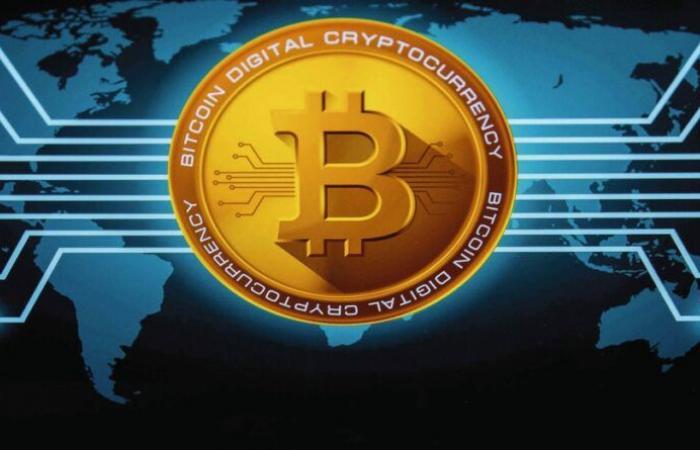It would be right to stop talking about cryptocurrency in the case of bitcoin, since it is not a currency: it does not serve as a unit of account and has only very marginally been used for commercial exchanges. The first transaction, almost fifteen years ago, 2 pizzas in exchange for 10,000 bitcoins (i.e. a little more than 900 million euros in mid-December) was not imitated due to its extreme volatility. Calling it a cryptoasset seems fairer: it is only a speculative product whose value depends on the trust placed in it. And it jumped following the election of Donald Trump, exceeding $100,000 for the first time.
The next Republican administration has made several promises to ensure the vote of crypto enthusiasts – rather young male voters – and their financial support as well, since 48% of corporate funding to Trump's campaign comes from this sector. First promise already kept: to get rid of the boss of the policeman of the American Stock Exchange, the SEC, notoriously hostile to cryptocurrencies. The largest exchanges were in its sights, the Chinese giant Binance as well as the largest North American platform Coinbase. The boss of the latter has already been received by the Trump transition team to talk about the future of the SEC…
In addition, the Republican senator from Wyoming is defending a bill, entitled the Bitcoin Act, which intends to have the US central bank purchase 1 million bitcoins – out of the maximum 21 million that will be in circulation since its emission is limited –, or 200,000 bitcoins per year, less those which have already been seized by the courts in numerous cases of fraud or money laundering where the cryptoasset played a central role… Here again, it is a question of keeping the bitcoins in the Federal Reserve, next to gold bars. This should support prices, but it will not turn bitcoin into currency.
In 2021, Salvadoran President Nayib Bukele tried to make bitcoin his national currency. He bought several thousand bitcoins, installed ATMs… But, three years later, almost no local businesses accept cryptocurrency payments, and the budget and public services have suffered greatly from the 60% collapse of bitcoin between 2021 and 2022. The rise in prices did not save the day for the country, which has just put itself under the control of the IMF and relegated bitcoin to an optional currency.
2,000 billion: This is, in euros, the cumulative value of bitcoins issued, the equivalent of the GDP of Italy or Canada
A very concentrated heritage
As for the general state of crypto adoption around the world, one must grapple with seemingly contradictory numbers. Studies commissioned by the industry suggest that 12% of French people and 40% of Americans under 35 (still more than 70% of men) own cryptoassets. This concerns cryptocurrencies, such as bitcoin or ether, but also NFTs (present as speculative tools in digital art, video games, etc.) and stablecoins (cryptoes indexed to the price of the dollar or the euro ). And, in fact, a whole portion of these users are not really aware that they hold a cryptoasset: they buy a unique gadget in a video game, hold a membership card to a community protected by a blockchain or any other use which is, more or less, part of what we call Web 3.
Those who hold cryptocurrencies, on the other hand, view them as more profitable than traditional savings tools, especially during this time of inflation. Its users make no mistake: it is a simple investment, except for a small proportion of them who use it to send funds abroad at low cost. The mapping of cryptocurrencies (such as that carried out jointly by the London School of Economics and MIT) shows that they are held by very few hands, and that concentration is accelerating since big players like the investment fund BlackRock began are put there. 1.86% of wallets hold over 90% of all available bitcoins and bitcoin itself accounts for two-thirds of all value in the cryptocurrency world. Worse, 90% of fund movements take place between the accounts of the same person, natural or legal. As for “merchant” exchanges, they are very few in number – between 1 and 3% of transactions – and are used in particular to buy illegal products (drugs, viruses, data, etc.) or to pay ransoms.
We can never say it enough, but bitcoin is an ecological aberration. Its operation requires 173 TWh of electricity consumption, the equivalent of Indonesia, a country of 260 million inhabitants. This waste of energy, completely disproportionate in view of the social utility of the product, is linked to the functioning of its blockchain, the technical process on which it is based. It is a type of account book, the integrity of which is constantly verified by machines. We call it mining, and it is by mining that we harvest new bitcoins. With the rise in prices, companies have created real factories filled with thousands of graphics cards (for computing power) to scrounge up bitcoins, further worsening the ecological footprint, since these factories have to be cooled, and the manufacturing of the semiconductors is very costly in terms of rare earths and water. The other known cryptoasset, Ethereum, has changed the way its blockchain operates, reduced its consumption by 99.9% and now only consumes 0.0026 TWh./
We can never say it enough, but bitcoin is an ecological aberration. Its operation requires 173 TWh of electricity consumption, the equivalent of Indonesia, a country of 260 million inhabitants. This waste of energy, completely disproportionate in view of the social utility of the product, is linked to the functioning of its blockchain, the technical process on which it is based. It is a type of account book, the integrity of which is constantly verified by machines. We call it mining, and it is by mining that we harvest new bitcoins. With the rise in prices, companies have created real factories filled with thousands of graphics cards (for computing power) to scrounge up bitcoins, further worsening the ecological footprint, since these factories have to be cooled, and the manufacturing of the semiconductors is very costly in terms of rare earths and water. The other known cryptoasset, Ethereum, has changed the way its blockchain operates, reduced its consumption by 99.9% and now only consumes 0.0026 TWh./
We can never say it enough, but bitcoin is an ecological aberration. Its operation requires 173 TWh of electricity consumption, the equivalent of Indonesia, a country of 260 million inhabitants. This waste of energy, completely disproportionate in view of the social utility of the product, is linked to the functioning of its blockchain, the technical process on which it is based. It is a type of account book, the integrity of which is constantly verified by machines. We call it mining, and it is by mining that we harvest new bitcoins. With the rise in prices, companies have created real factories filled with thousands of graphics cards (for computing power) to scrounge up bitcoins, further worsening the ecological footprint, since these factories have to be cooled, and the manufacturing of the semiconductors is very costly in terms of rare earths and water. The other known cryptoasset, Ethereum, has changed the way its blockchain operates, reduced its consumption by 99.9% and now only consumes 0.0026 TWh./
Before leaving, one last thing…
Unlike 90% of French media today, Humanity does not depend on large groups or billionaires. This means that:
- we bring you unbiased, uncompromising information. But also that
- we don't have not the financial means that other media benefit from.
Independent and quality information has a cost. Pay it.
I want to know more






